nlopchantamang.com
A Lasting Lockdown Hobby, Baby Proofing Products, and Healthy Yards
Aja Frost @ajavuu
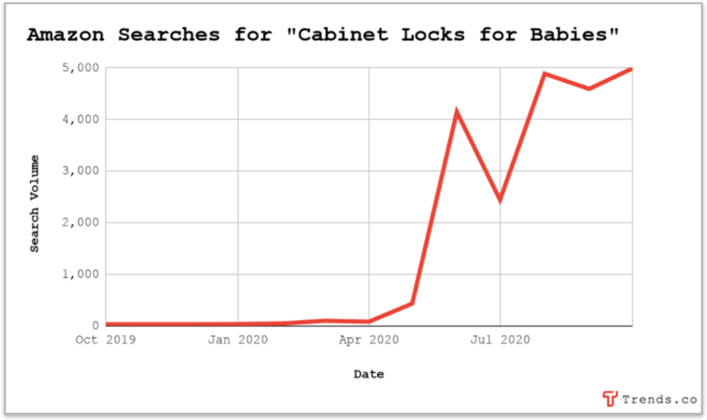
Painting: A Lasting Lockdown Hobby
Nationwide lockdowns have seen many people turn to new hobbies that they can do at home. But unlike the rise and fall of sourdough baking (which has already returned to pre-pandemic levels), painting appears to be sticking around; membership of various painting subreddits started spiking as late as September.
The trend is also gaining traction on social media platforms like TikTok, where tags such as #OilPainting and #WatercolorPainting have ~500m and ~118m views, respectively. Monthly search interest is also high, according to Keywords Everywhere:
- “Oil painting for beginners”: 12.1k
- “Oil painting ideas”: 9.9k
- “Watercolor painting ideas”: 8.1k
- “Easy watercolor paintings for beginners”: 6.6k
- “Watercolor painting tutorial”: 5.4k
- “Oil painting tutorial”: 3.6k
There is clearly demand for products and services that appeal to the TikTok generation. In addition to kits, tutorials, and newsletters, you might consider starting a monthly subscription service.
Let’s Make Art is already doing this. You could take this one step further by creating separate lines for beginners, intermediates, and experts. You could also collaborate with different TikTok influencers each month to create new designs and drive sales.
A key component here is community: People are craving a community with which to share their works. The Let’s Make Art: Watercolor Facebook community has 52k+ members. Even if we assume that only half of the community members have an active monthly subscription at $35/month, that’s a ~$1m MRR business.
Monthly classes, such as those offered by Yaymaker are also a way to build community. According to Keywords Everywhere, the terms “paint night” and “virtual paint night” rack up 40k and 3k searches/month respectively.
Secure Baby, Secure Parents
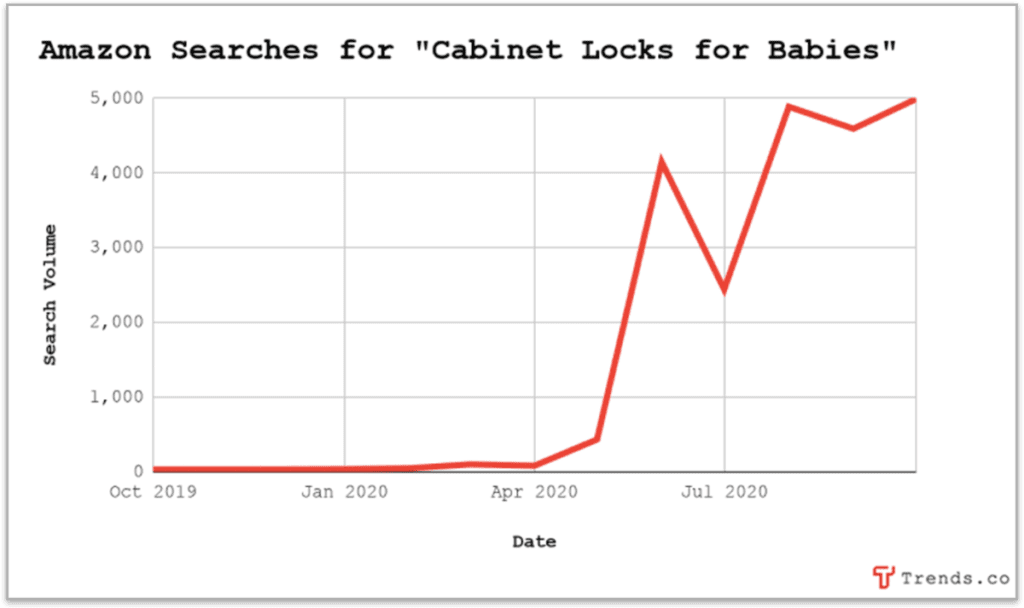
A particularly anxiety-inducing year has seen a surge in search interest for baby and child safety products.
On Amazon, search interest for “baby safety products” jumped 5x over the last 90 days, according to Jungle Scout. The increase is consistent across specific products as well:
- “Plugs for outlets”: +1,313%
- “Child safety locks for cabinets and drawers”: +594%
- “Baby monitor Wi-Fi smartphone”: +200%
- “Childproof doorknobs”: +113%
Leading baby monitor brands have also recently shown record numbers in web traffic, according to SimilarWeb:
- Owlet (total funding amount $48m, known for Smart Sock, which tracks a baby’s heart rate and oxygen levels): 330k visits in August, and
- Nanit (a baby monitor that tracks breathing motion): 130k visits in August
In addition to selling low-tech (e.g., this cabinet lock, which generates ~$200k in revenue/month) and high-tech (e.g., this baby monitor, which generates ~$1.5m in revenue/month) products, there’s room in the market for more comprehensive baby-safety kits and virtual baby-proof inspectors. You could also empower parents through courses, newsletters, and coaching.
Again, community is key: London-based Peanut is a female-focused social network with 1.6m users that allows moms to connect, make friends, and lean on each other for support and advice (e.g., baby-proofing tips). Earlier this year, the company raised $12m on the heels of significant growth in online social networking spurred by COVID.
Healthy Yards Are on the Rise
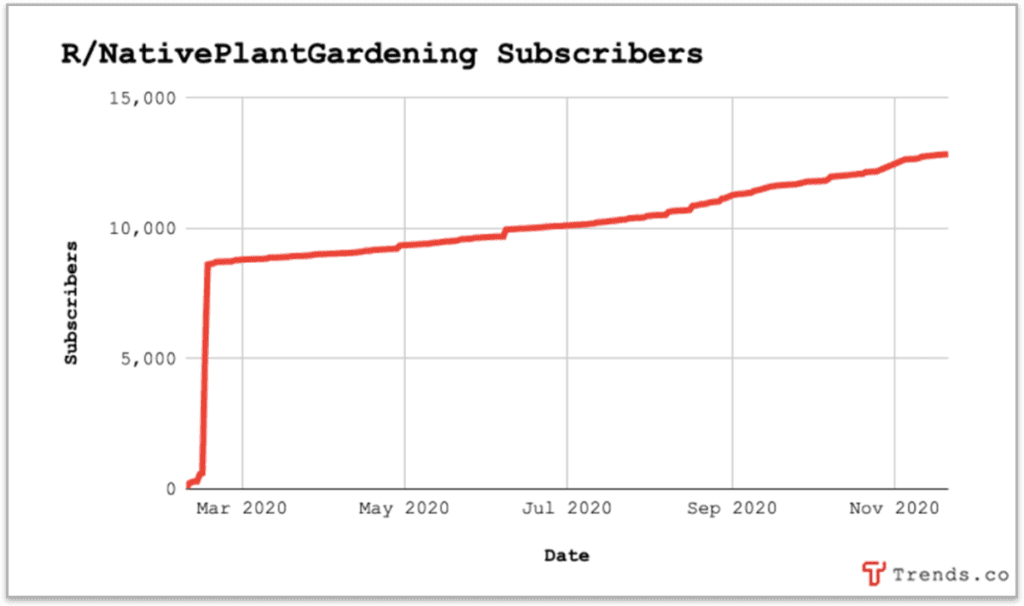
Americans spend $60B a year to maintain traditional lawns. But people are increasingly replacing traditional turf grasses (e.g., bermuda grass, fine fescue, kentucky bluegrass, and centipede grass) with native plants.
Nine percent of Americans converted at least part of their yard to natural/wildflower landscape last year. This spring, the National Wildlife Federation’s (NWF) online gardening initiative saw six times the usual amount of web traffic.
In 2018, 83% of landscapers said they were increasingly asked to plant environmentally-friendly, native plants in client’s yards.
Minnesota recently announced it would award up to $350 to homeowners that replace turf grasses with bee-friendly native plants, and Nevada implemented a similar program over water usage.
As Americans abandon traditional lawns over environmental concerns, opportunities will emerge for entrepreneurs in sustainable landscape design and care.
You could provide alternatives to traditional lawn plants such as native plants (12.1k searches/month according to Keywords Everywhere), and organic mulch (5.4k).
Environmentally-friendly lawn care equipment is also an attractive option: The electric and lithium battery-powered lawn equipment industry is expected to grow at a compound annual growth rate (CAGR) of +8% between 2019-2025. One of the top electric lawnmowers on the market retails for ~$300 and generates ~$380k/month on Amazon, according to JungleScout.
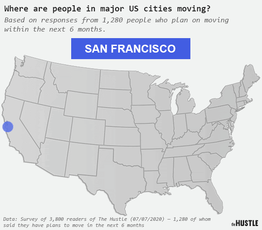
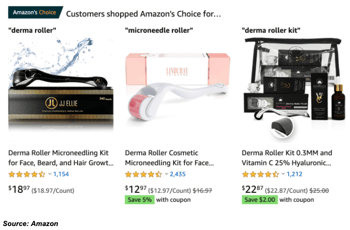
Leave a Comment